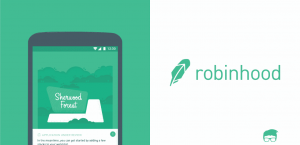It may seem hard to believe that Robinhood was started just six years ago in 2013. Today, the online brokerage platform boasts over 6 million users, which far surpasses the number of users on incumbent Etrade’s platform. Are commission free brokerage accounts that alluring? One group that certainly sees the benefit of the generous offering are today’s youth.
Certainly America’s younger generation understands the value of investing but they’re also very mindful of where they spend their money and all the alternatives available to them, especially digitally. Perhaps Robinhood’s backers realized this early on. To date, over $500 million has poured into the company. It’s most recent reported valuation is unbelievably over $5.0 billion.
Investors include CapitalG, Google’s growth equity fund, Index Ventures, ICONIQ, Sequoia, and Kleiner Perkins, among other notable names. The company was founded by two technologists, Vladimir Tenev and Baiju Bhatt who had previously built high frequency trading platforms for financial institutions in New York. In under 30 days after launching, the platform the two had built in stealth mode had over 100,000 signups. And within less than a year, there were over 500,000 people on Robinhood’s waitlist.
By February of 2017, the company had executed over $30 billion in trades. All this from a four year old entity that had no storefront and that operated primarily through mobile apps and a website. A new era has arrived for sure in financial technology where millions of people trusted a startup platform to process billions of dollars of transactions.
Reportedly, the company is targeting to go public in 2019. So how does Robinhood make money? Primarily it’s through interest, any cash in accounts of customers that is sitting idle, earns interest. Additionally, certain customers will choose add-on services such as live broker trading over the phone or foreign stock transactions. Robinhood can charge $25 to $50 for each of these services. The company can also make money through commissions it earns from the electronic trading firm it sends orders to, such as Citadel, as well as through premium accounts, what it calls “Robinhood Gold” where margin lending is available.
























